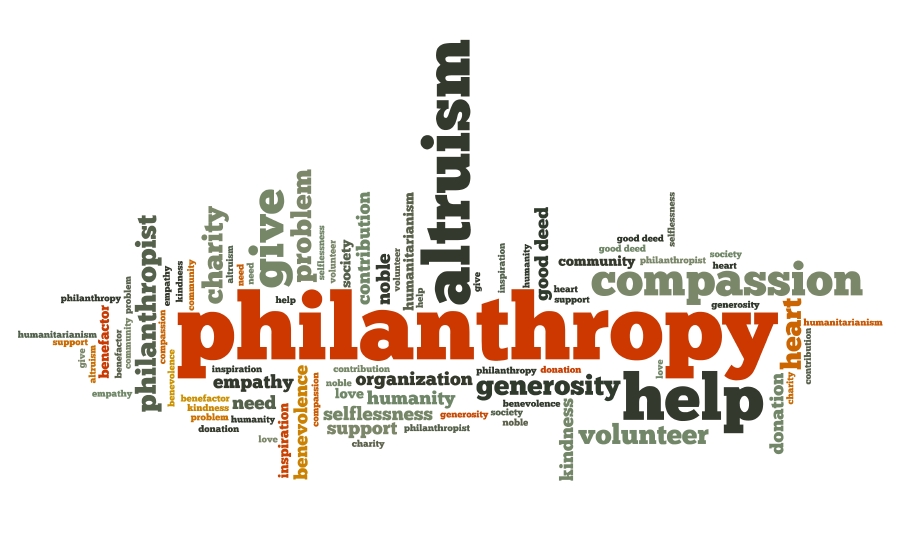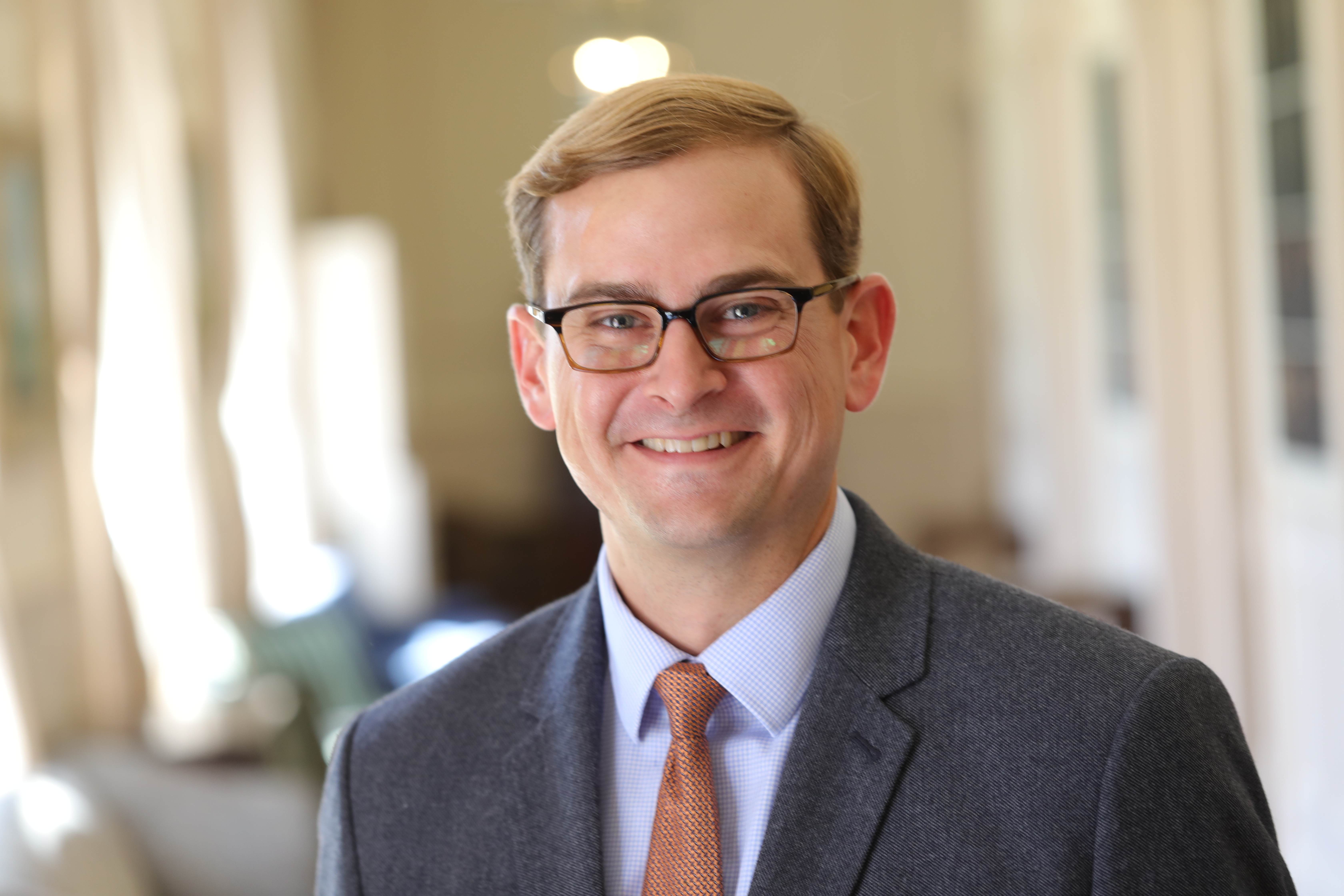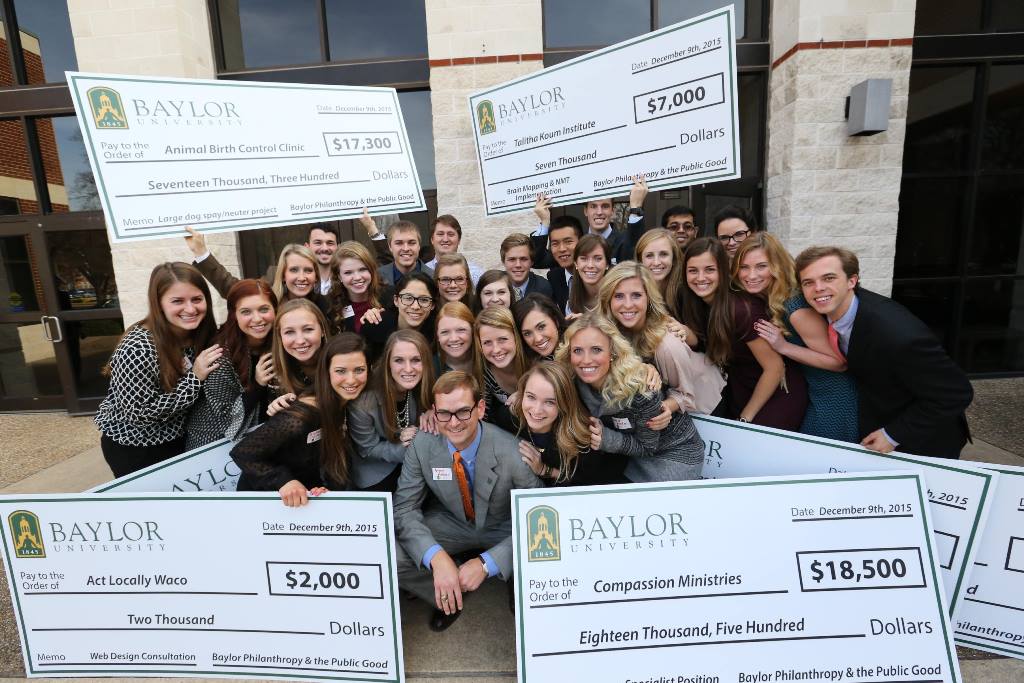Resolving to Be More Generous in the New Year - Baylor Philanthropy Expert Offers Four Ways to Develop Spirit of Generosity



Media Contact: Lori Fogleman, 254-710-6275 or cell 254-709-5959
Follow Lori on Twitter at @LoriBaylorU
Follow Baylor Media Communications on Twitter: @BaylorUMedia
WACO, Texas (Dec. 11, 2014) – Many Americans already have enough “stuff,” and the gift-giving season sometimes adds to that collection of things we really don’t need. Instead of always receiving, how can we resolve to be more generous in the New Year?
Andy Hogue, Ph.D., is a lecturer in political science and director of the Civic Education and Community Service Program at Baylor University. He also teaches the university’s Philanthropy Lab course, “Philanthropy and the Public Good.”
“One of the things we’ve talked about a lot in the course with 21- and 22-year-olds, who have very limited incomes themselves, is what does generosity mean? What does it mean to be a generous person?” Hogue said. “Whatever our station, however much money or resources we have, we all have something to share and something to give. I like the idea of thinking in terms of a New Year’s resolution, sort of resolving to be more generous and helping people to think in those ways.”
Hogue offers four ways individuals and families can develop a spirit of generosity in the New Year.
1) Generosity starts with gratitude. “That is the very first step, just being grateful for what we have, but also realizing that to those given much, much is expected, and to begin thinking about not possessing things but stewarding things,” Hogue said. “Think of the many things we have that might benefit others, whether that is our time, our talents or our finances. There are so many things that we have at our disposal to be able to enrich communities and to help other people. Being able to think in those ways leads us down the path toward generosity and toward sharing.”
2) Generosity is more than just a transaction. “Think of philanthropy, generosity and giving as more than writing a check. Think of it as something that can be transformative and realize that there is no such thing as an unhappy generous person. It’s difficult to be unhappy when we are giving of ourselves.”
3) Generosity is a muscle you have to exercise. “If we can’t give of ourselves when we have limited means, what makes us expect that we would do it when we have more means?” Hogue said. “We all, in some way, are privileged and blessed and have resources that can be put to use for the benefit of someone else.”
4) Generosity can be creative. There are inspired ways to give birthday or Christmas gifts in honor of a family member or friend that bring about a beautiful thing Hogue likes to call the “philanthropy of collaboration.”
“Imagine the many things that come together in this one simple act: you, the giver, are enriched by the series of events you set into motion while the person you honor with the gift appreciates your generosity and imagination. The beneficiary of the gift then takes your offering to enrich the lives of others,” Hogue said. It is, however, important to take cues from the person you honor and give a gift in support of the causes they hold dear.
“You can go the traditional route – make a donation and give the person a piece of paper (acknowledging the gift) – or there are amazing web-based resources that can help people make very impactful gifts even with limited amounts,” Hogue said. “You give five dollars and with the magic of the Internet, the gift can go towards fighting disease in Africa, providing books for teacher’s classroom or buying someone in a poor country a goat or a cow or a pig that can be a source of generating income.”
Hogue taught 30 students in Baylor’s inaugural Philanthropy Lab course this past fall in which students studied the history and philosophy of giving back while also directing $100,000 in real money to deserving local nonprofit organizations. The primary goal of The Philanthropy Lab, a project of the Fort Worth-based Once Upon a Time Foundation, is to ignite students’ interest and participation in philanthropy, encouraging thoughtful giving by providing funds to university philanthropy courses and enabling students to evaluate nonprofit organizations and award grants.
ABOUT BAYLOR UNIVERSITY
Baylor University is a private Christian University and a nationally ranked research institution, characterized as having “high research activity” by the Carnegie Foundation for the Advancement of Teaching. The University provides a vibrant campus community for approximately 16,000 students by blending interdisciplinary research with an international reputation for educational excellence and a faculty commitment to teaching and scholarship. Chartered in 1845 by the Republic of Texas through the efforts of Baptist pioneers, Baylor is the oldest continually operating University in Texas. Located in Waco, Baylor welcomes students from all 50 states and more than 80 countries to study a broad range of degrees among its 12 nationally recognized academic divisions. Baylor sponsors 19 varsity athletic teams and is a founding member of the Big 12 Conference.